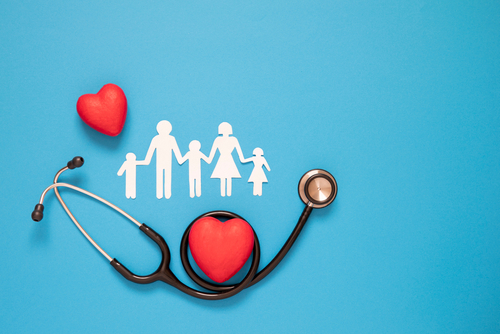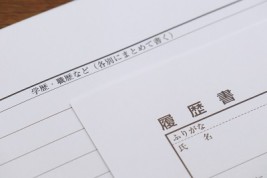Studying in Japan for a long period of time, such as for study abroad, working holiday, and job hunting, can be a pleasure, but at the same time, you may be worried about illness and injury.
In this article, we would like to explain the conditions for taking out a medical insurance in Japan, the types of medical insurance, insurance premiums, and procedures for foreigners who are planning to stay in Japan for a long period of time.
Contents
- 1 Is it Absolutely Necessary to have government medical insurance?
- 2 What kind of Medical Insurances are available in Japan?
- 3 Procedures and the Time Frame Required to Obtain Medical Insurance
- 4 Conclusion
Is it Absolutely Necessary to have government medical insurance?
If you are covered by the government’s medical insurance, the co-payment of medical expenses to hospitals is basically 30% for people between the ages of 6 and 70. For example, when a medical cost is 10,000 yen, you can only pay 3,000 yen if you show your health insurance card to the hospital. This is the advantage of medical insurance in Japan.
In other countries, it is generally up to the individual to purchase medical insurance, but in Japan, all citizens (regardless of nationality) are required to have some type of medical insurance. In other words, all foreigners who are staying in Japan for a long period of time other than a short stay (3 months) are required to take out a medical insurance policy.
What kind of Medical Insurances are available in Japan?
In Japan, there are two types of medical insurance in general.
1.Social health insurance (Shakai-hoken)
The health insurance is for company employees in Japan.
2.National health insurance (Kokumin-kenko-hoken)
The health insurance is for housewife, freelancer, students with more than 20 years old and so on. In case of foreigners, it’s foreign students and foreigners who came to Japan on a working holiday and so on.
From now on, we would like to explain these two types of medical insurance briefly.
What is Social Health Insurance for Companies Employees?
Social insurance (shakai-hoken) consists of five components: health insurance, employees’ pension insurance, long-term care insurance, workers’ compensation insurance, and unemployment insurance, health insurance is included in this social insurance (shakai-hoken).
In Japan, full-time, contract, and part-time employees who meet the following requirements are eligible for social insurance: employees who work 20 hours a week, earn at least 88,000 yen a month and have been working for at least one year. Whenever a company hires an employee who meets certain requirements, it is obligated to have he or she joins the social insurance system.
How much is the Insurance Fee for Social Insurance (shakai-hoken) ?
The amount of social insurance fee varies depending on the area you live in, your income, and which health association you belong to. Therefore, the fees paid by a person working in Tokyo and Osaka are different.
And the payment of social insurance premiums is usually made by the company. The company deducts the monthly social insurance fee from the employee’s monthly salary, so the employee does not have to go through the payment process.
In case of employees and family members working for small and medium-sized companies who joined “Association Health Insurance” (Kyokai-kenpo), the health insurance premium rate in Tokyo from April 2020 will be 9.87% of their monthly salary as a monthly health insurance fee.
However, instead of paying the entire amount individually, the company and the individual will pay half of the insurance premiums. Therefore, half of the 9.87% of your monthly salary will be deducted from your salary as health insurance premiums.
In addition to the health insurance premiums, there are other social insurance fees such as employee pension insurance, which are generally deducted from your monthly salary.
※The following links are for information about health insurance.
What is National Health Insurance (kokumin-kennko-hoken) ?
It is a health insurance program run by local governments and is available to those who are listed on the Basic Resident Register and are not covered by the company’s health insurance. You are obliged to purchase this insurance if you are staying in Japan for more than three months for purposes other than tourism. For example, foreign students who are studying in Japan or foreigners who are coming to Japan on a working holiday are required to join the National Health Insurance.
If you want to know more about National Health Insurance, please take a look at the links that explain National Health Insurance in English, Spanish, Chinese, and other languages. National Health Insurance in English, Spanish, Chinese and other languages. ((About National Health Insurance / Multilingual))
How much is the National Health Insurance Premiums?
Insurance premiums vary greatly depending on the city, town, or village you live in, your income, and other factors. The following website provides a simulation of the national health insurance fees. However, please note that fees vary from city to city and town to town, so please use it as a guide only.
National Health Insurance Premium Simulation (Japanese)
Procedures and the Time Frame Required to Obtain Medical Insurance
Health insurance (social insurance) is medical insurance that foreigners who come to Japan to work. He or She can enroll in when they join a company. Therefore, the first condition for enrollment is that the foreigner must have a labor visa.
The application for social insurance (health insurance) is not to be completed by the foreigner him/herself, but together with the company where he/she joins the company. The company and the employee will fill out the documents prepared by the company and submit them to the health insurance association with necessary documents such as the validated residence card, passport, and my-number card.
Using the “Association Health Insurance” (Kyoukai-kenpo) as an example, you will receive your insurance card in about 7 to 10 days from the date the company submits the documents. However, it tends to arrive later during the busy season in April and other months when people enter and leave the company. Since this is only an example, the period of time may vary depending on the health insurance association you join.
National Health Insurance Procedures
If you want to apply for National Health Insurance, you must apply for it within 14 days from the date of entry into Japan, the date of your move to another city or prefecture in japan, or the date you lost your social insurance membership (e.g., the date you resigned). Even if you resign from your current employer, you do not need to apply for National Health Insurance as long as you start working at your new employer within 14 days of the date you resigned.
In Japan, it is compulsory to enroll in health insurance, so if there is a delay in the application process, you will be billed for the delayed amount at a later date, so please be careful. If you visit a hospital or other medical facility while you are not covered by the insurance, you will be responsible for 100% of the cost of the visit.
We would like to introduce what you need in order to enroll in the National Health Insurance.
Foreign Students (Ryuugakusei)
- Passport
- Resident card (Zairyu-card)
- Student ID card
Working Holidays
- Resident card
- Passport
When you lose eligibility for social insurance (when you leave a company)
- Residence Card or Special Permanent Resident Certificate
- One of the following: certificate of disqualification (health insurance), release form, retirement certificate, or tax withholding certificate (with the date of retirement entered)
How long it takes for National Health Insurance to become Available?
Unlike health insurance (social insurance), you can apply for National Health Insurance at the city hall. The National Health Insurance card is issued on the same day as the application and can be used at hospitals and other facilities from the same day
Conclusion
In Japan, it is compulsory to purchase medical insurance so that all citizens can easily go to the hospital even for minor symptoms such as “slightly feverish” or “feeling sick”. Because of this, the amount of money that an individual actually pays at the hospital is about 30% of the total cost.
In addition, there is a system called the high-cost medical care benefits system, which sets an upper limit for monthly medical expenses based on income, so if you have a surgery or hospitalization that results in high medical expenses, you can receive a refund for any medical expenses that exceed the upper limit of your copayment.









